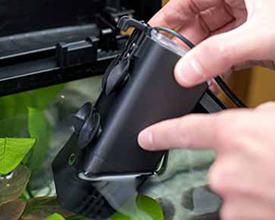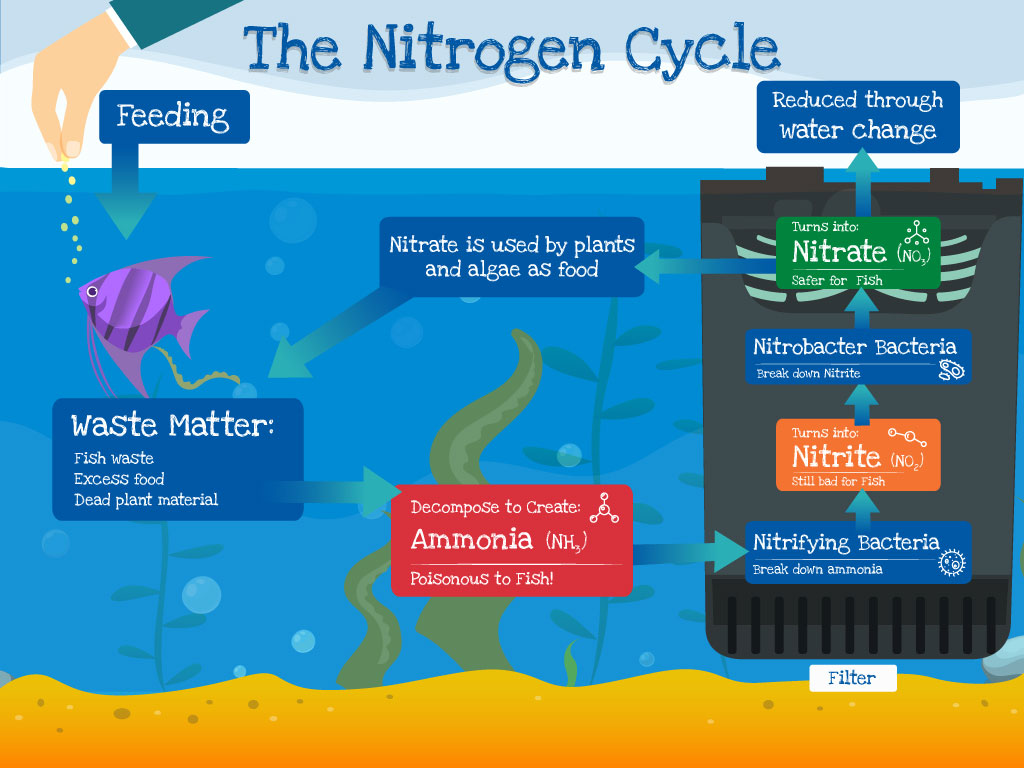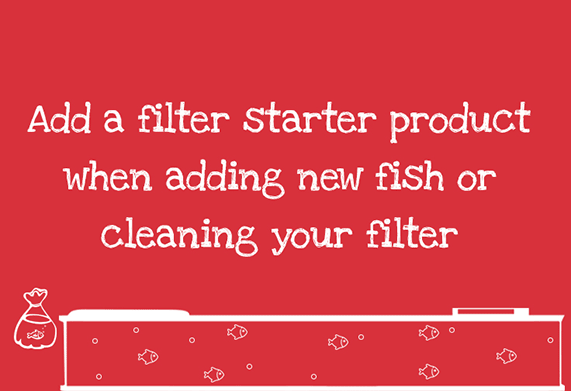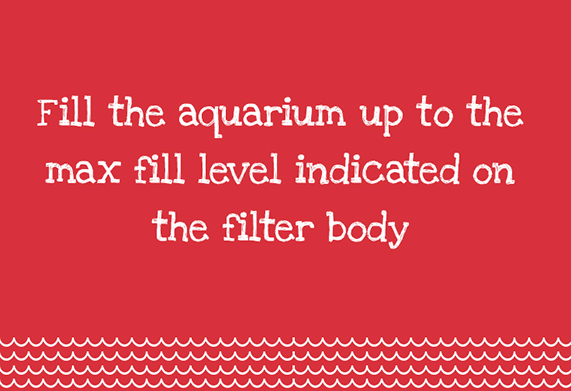What’s your filter for?
An aquarium filter has several jobs to do, but its main purpose is to keep your aquarium clean, clear and healthy for your fish.
An aquarium is a closed system, so dirt and waste remain in the aquarium, turning it into a poisonous sewer without our intervention. This is why a filter is one of the most essential pieces of equipment in your fish tank.
It acts like a mini sewerage treatment works, and cleans up the aquarium water in several ways:

Your filter will remove dirt particles from the water. Cleaning you filter every month removes the dirt to keep things running smoothly.
Friendly bacteria – the majority of which live in the biological media in your filter – processes waste compounds to stop them poisoning the fish. See – Understanding the Nitrogen cycle.


Your filter will remove algae food, harmful metals, toxins, nasty odours and organic dyes for crystal clear, healthy water.

Your filter will move water around the tank to help add essential oxygen and remove carbon dioxide.
So, take good care of your filter as it is the life support of your aquarium.
Here are some of our top tips for good filter care:
- It can take up to 8 weeks to establish the biological system in a new aquarium. Add Fast Filter Start to help improve this process.
- Check your filter every day. Check it’s working properly and clear any dirt or blockages.
- Look out for evaporation and keep your aquarium topped up to the maximum water level. Always use Bioactive Tapsafe when adding new water.
- Follow recommended cleaning and maintenance routines – See weekly and monthly care.
- Add a filter booster treatment, such as Fast Filter Start, when starting your aquarium and when adding new fish.
- Never clean the biological media in tap water. If it needs a clean, swill the media cartridge in a bucket of aquarium water (when doing a water change).
- Regularly test your aquarium water. Most problems come from invisible toxins building up; this cannot only damage your fish, but may also cause filtration problems.


